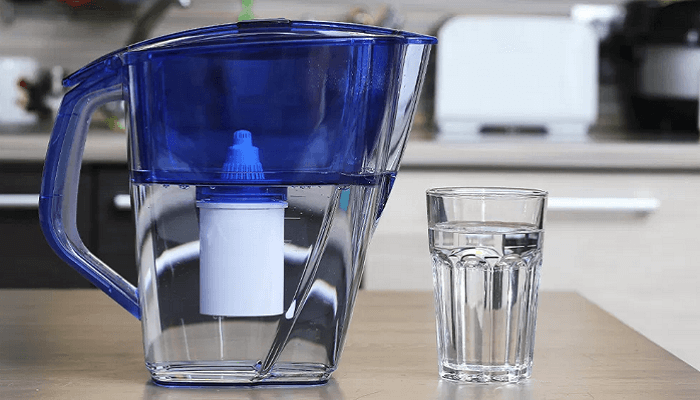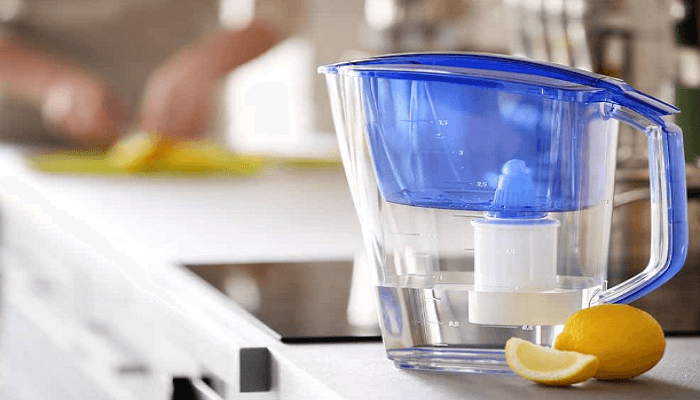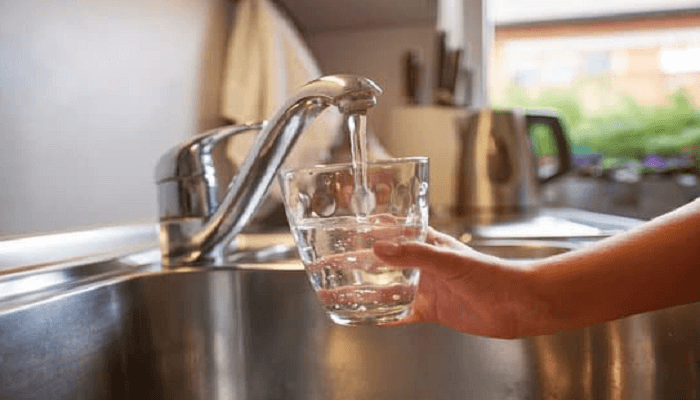Why Are Brita Filters So Expensive – Brita filters are known for their ability to provide clean, filtered water that is free of contaminants and impurities.
They are a popular choice for those who want to enjoy the taste and benefits of clean water without spending a lot of money on bottled water or other filtration systems.
One question that often comes up is why are Brita filters so expensive. In this article, we will explore the reasons behind the high cost of Brita filters and whether they are worth the investment.
Reasons Why Are Brita Filters So Expensive

High-Quality Materials
One reason why Brita filters are expensive is that they are made of high-quality materials. The filters use activated carbon and ion exchange resin to remove impurities and contaminants from water.
These materials are more expensive than the ones used in other water filtration products, which is why Brita filters are priced higher than some of their competitors.
Advanced Filtration Technology
Another reason why Brita filters are expensive is that they use advanced filtration technology to purify water.
The filters are designed to reduce chlorine, sediment, and other contaminants that can affect the taste and quality of water.
They also feature a unique filter media that removes copper, mercury, and other heavy metals from water.
This advanced filtration technology is what sets Brita filters apart from other water filtration products and justifies their higher price.
Patented Designs
Brita has patented the designs of their filters, which means that other companies cannot replicate their products.
This exclusivity comes at a cost, as Brita has to invest more money into research and development to create innovative filter designs that are protected under their patents.
This investment in design and innovation is reflected in the higher cost of Brita filters.
Brand Recognition
Brita is a well-known brand that has been around for over 50 years. They have built a reputation for producing high-quality water filtration products that are effective and reliable.
Consumers trust the Brita brand, which means that they are willing to pay a premium for Brita filters over other brands that are less well-known or trusted.
Manufacturing Costs
The manufacturing process for Brita filters is complex and requires specialized equipment and skilled workers.
This adds to the cost of producing the filters, which is reflected in the higher price of the product.
Brita filters are also made in Germany, which is known for its high labor costs compared to other countries.
Testing and Certification
Brita filters go through rigorous testing and certification processes to ensure that they meet high-quality standards.
This includes testing for the reduction of contaminants, performance, and durability. These certifications are important to ensure that the filters are effective and safe for use.
The cost of testing and certification is added to the cost of producing the filters, which is reflected in the higher price of the product.
Cost of Marketing and Advertising
Brita filters are a popular product that is sold all over the world. To maintain its market share and continue to grow, Brita invests a lot of money in marketing and advertising.
This includes advertising campaigns, sponsorships, and promotions.
The cost of marketing and advertising is added to the cost of producing the filters, which is reflected in the higher price of the product.
Are Brita Filters Worth the Investment?

While Brita filters are more expensive than some of their competitors, they are worth the investment for several reasons.
First, they are made of high-quality materials and use advanced filtration technology that is effective at removing impurities and contaminants from water. This means that the water you drink will taste better and be safer to consume.
Second, Brita filters are designed to be easy to use and maintain. They are available in a variety of models, including pitchers, dispensers, bottles, and faucet filters, so you can choose the one that best fits your needs.
The filters are also easy to replace and require little maintenance, which means that you can enjoy clean water without having to invest a lot of time or effort.
Third, Brita filters are a more environmentally friendly option than bottled water. Bottled water produces a significant amount of plastic waste, which is harmful to the environment. By using Brita filters, you can reduce your plastic waste and make a positive impact on the environment.
Fourth, using Brita filters can also save you money in the long run. While the initial cost of the filters may be higher than other water filtration products, they are a more cost-effective option than buying bottled water.
According to Brita, their filters can provide up to 40 gallons of clean water, which is equivalent to about 300 16.9-ounce water bottles.
This means that you can save money by using Brita filters instead of buying bottled water.
Finally, Brita filters are backed by a reputable brand that is known for producing high-quality water filtration products.
They go through rigorous testing and certification processes to ensure that they meet high-quality standards, which means that you can trust that the water you are drinking is safe and free of contaminants.
Is Brita-filtered Water Good for You?

Yes, Brita-filtered water is generally considered safe and healthy to drink. Brita filters use a combination of activated carbon and ion exchange resin to remove impurities and contaminants from tap water.
The activated carbon helps to remove chlorine, sediment, and other organic materials that can affect the taste and smell of water, while the ion exchange resin helps to remove heavy metals like lead, copper, and mercury.
Brita filters are also designed to retain beneficial minerals such as calcium, magnesium, and potassium, which are important for maintaining overall health.
These minerals are naturally present in tap water and are essential for maintaining healthy bones and teeth, regulating blood pressure, and supporting the proper function of the nervous system.
It’s worth noting that the quality of tap water can vary depending on where you live and the source of your water.
Some areas may have higher levels of contaminants or minerals, which may require more advanced filtration methods to ensure safe and healthy drinking water.
Brita filters are designed to remove common contaminants found in tap water, but if you have concerns about the quality of your water, you may want to consider having your water tested by a professional or using a more advanced water filtration system.
Pros of Brita Water Filter:
Improved taste and odor
Brita water filters use activated carbon and ion exchange resin to remove impurities and contaminants from tap water, resulting in water that tastes and smells better.
Convenient and cost-effective
Brita water filters are easy to use and require little maintenance. They are also a more cost-effective option than buying bottled water, which can save you money in the long run.
Environmentally friendly
Using Brita water filters can help to reduce plastic waste by eliminating the need for single-use plastic water bottles.
Retains beneficial minerals
Brita water filters are designed to retain beneficial minerals such as calcium, magnesium, and potassium, which are important for maintaining overall health.
Trusted brand
Brita is a reputable brand that is known for producing high-quality water filtration products, and their filters go through rigorous testing and certification processes to ensure that they meet high-quality standards.
Cons of Brita Water Filter:
Limited filtration
While Brita water filters are effective at removing common contaminants found in tap water, they may not be effective at removing all contaminants, such as bacteria or viruses.
If you have concerns about the quality of your water, you may want to consider using a more advanced filtration system.
Frequent filter replacement
Brita water filters need to be replaced every two to six months, depending on usage. This can be inconvenient and add to the overall cost of using a Brita water filter.
Slow filtration
Brita water filters can take some time to filter water, which may be inconvenient if you need water quickly.
Requires regular maintenance
While Brita water filters require little maintenance, they do need to be regularly cleaned to prevent the growth of bacteria and mold.
May not be suitable for all water sources
Brita water filters may not be suitable for all water sources, particularly if your water is heavily contaminated or has a high mineral content.
You may need to consider using a more advanced filtration system if you have concerns about the quality of your water.
Conclusion: Why Are Brita Filters So Expensive
In conclusion, while Brita filters may be more expensive than some of their competitors, they are worth the investment for several reasons.
They are made of high-quality materials, use advanced filtration technology, and are designed to be easy to use and maintain.
Using Brita filters is also a more environmentally friendly option than bottled water, can save you money in the long run, and is backed by a reputable brand that is known for producing high-quality water filtration products.
So, if you’re looking for a reliable and effective water filtration system, Brita filters are definitely worth considering.